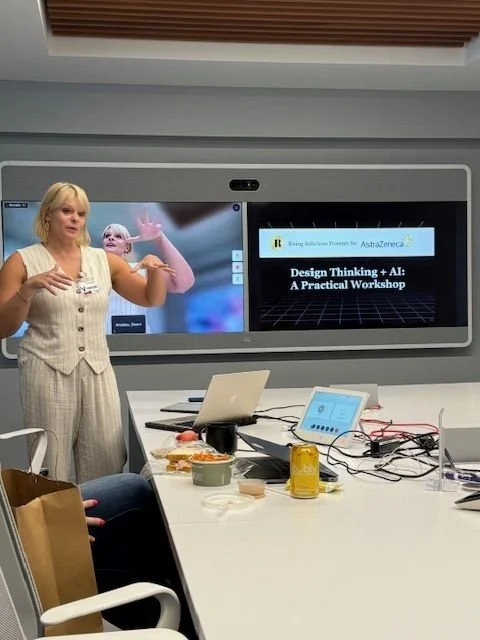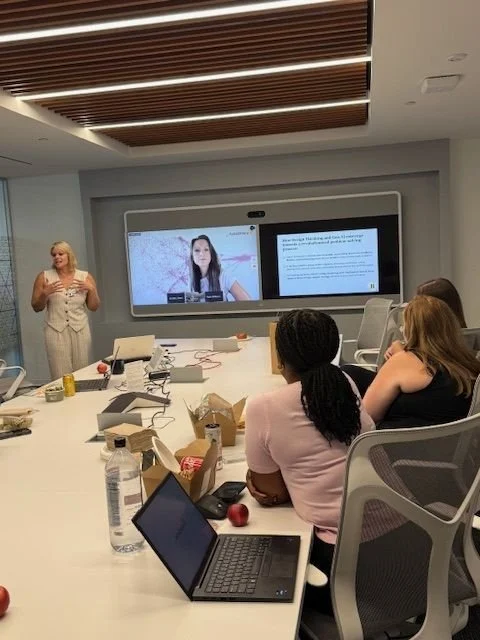Design Thinking, Supercharged with Gen AI: Workshop Series with AstraZeneca
What does it take to make smarter decisions in a world where science moves faster than systems can adapt? For a pharmaceutical company like AstraZeneca, the stakes are high as they navigate accelerating breakthroughs amidst layers of complexity.
That’s why their teams are exploring a powerful new combination of using Design Thinking to surface human insights and clarify real problems while leveraging advancements in Generative AI to dramatically speed up the path from idea to execution. Together, these tools help teams stay future-ready, without losing scientific rigor or cross-functional alignment.
The Challenge: A Tipping Point in Pharma Operations
For AstraZeneca’s Oncology Business Planning, Operations & Transformation team, the opportunity was clear. Internal processes, from market access to patient outcomes, are increasingly multidisciplinary, fast-paced, and global in scope. Yet lessons learned aren’t easily shared, operational insights go uncaptured, and over-stretched stakeholders rely on outdated channels to stay informed.
Leadership recognized that a new kind of thinking and a new kind of problem-solving process were needed. The team crafted the following real How Might We Statement to focus on for a one hour design challenge: how might we improve the way operational knowledge (e.g., process updates, lessons learned, best practices, tech/science insights) is captured, shared, and made readily accessible to the teams that need it most - without overwhelming employees with more meetings or complex systems?
Our Approach: Design Thinking, Supercharged with Gen AI
Rising Solutions facilitated our Generative AI and Design Thinking workshop that merges classic Design Thinking with the power of generative AI tools.
The methodology teaches the five Design Thinking phases, including Discover, Define, Ideate, Prototype, and Test, with generative AI embedded throughout:
In the Discover phase, teams used AZ ChatGPT to generate user interview guides and role-play stakeholder conversations, rapidly uncovering root issues in communication and knowledge capture.
In the Define phase, they synthesized transcripts to identify key themes and validate their problem framing.
In the Ideate phase, AI was used to generate, evaluate, and even improve creative solutions based on real insights.
In the Prototype and Test phases, teams created logos, refined their concepts, and prepared a three-slide PowerPoint for evaluation by none other than ChatGPT.
The result? A design sprint that collapsed days of work into 60 minutes, with each team presenting a real concept presentation at the conclusion. In a powerful moment, one attendee even remarked at the end, “We did in this design challenge what I have been working on for weeks.”
Why It Matters
In an industry built on precision, the unpredictable and iterative nature of innovation can feel risky. But the real risk is continuing with outdated approaches while the world changes around you.
AstraZeneca’s workshop investment proved that combining Design Thinking and Generative AI isn’t just a nice-to-have; it’s a practical strategy for building adaptive, insight-driven operations. When teams are trained in both design clarity and technological fluency, they future-proof themselves.
Curious What This Could Look Like for Your Team?
Rising Solutions designs custom AI + Design Thinking workshops for high-performing teams navigating complexity. If you’re ready to move faster with more clarity, without losing the human touch, please reach out.



